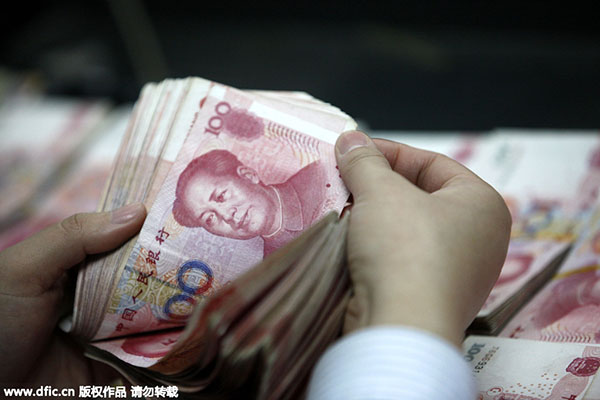The dilemma of more taxes for better welfare
Updated: 2016-03-02 08:51
By STEIN KUHNLE(China Daily)
|
|||||||||
 |
|
A Chinese clerk counts RMB (renminbi) yuan banknotes at a bank in Huaibei city, East China's Anhui province, January 22, 2015. [Photo/IC] |
China has taken major strides in terms of social security and protection. Policies have been built on a combination of social insurance, social assistance and welfare services. And of major importance is the nine-year free and compulsory education for all. Increasingly larger percentages of the population, including the most vulnerable groups, such as poor rural residents, the unemployed and-to a gradually larger extent-migrant workers, have been included in social policies. Minimum living standards schemes, as well as medical insurance and pension schemes have been introduced, although with a fragmented structure and variations in organization, scope of implementation, entitlements and benefit generosity based on people's hukou (household registration) status and other criteria. Therefore, benefits are for many very modest.
The welfare system is not uniform across the country, but there is at least a declared political aim of achieving universal coverage by 2020. Access to and standards of education and health have been greatly improved, although rural-urban and regional inequalities persist, as does the inequality of income distribution. Compared with developed (some would say "over-developed") European "welfare states", there are also some elements missing in the Chinese social policy development, such as family policy to facilitate reconciliation of childcare and work, and promotion of gender equality.
This policy area, in combination with the recent lifting of the one-child policy, can be crucial for achieving the politically desired increase of the fertility rate to a level that would help maintain a more balanced age composition of the population.
China's economic development makes room for expansion of social policy, but the development of social policy cannot be considered to have been a driver for economic development, as it has in other East Asian countries, and also historically in parts of Europe. For example, one of many motivations for Germany's first chancellor Otto von Bismarck to introduce the world's first large-scale social insurance program in the 1880s was to make Germany perform better in international economic competitions.
Related Stories
Minor adjustments expected for income tax system 2016-03-02 08:18
Broaden tax base to pay for universal pension scheme 2016-03-01 11:19
Tax reductions aim to boost service trade 2016-02-15 08:02
Govt to ease tax burden on four industries 2016-02-01 08:06
Today's Top News
Inspectors to cover all of military
Britons embrace 'Super Thursday' elections
Campaign spreads Chinese cooking in the UK
Trump to aim all guns at Hillary Clinton
Labour set to take London after bitter campaign
Labour candidate favourite for London mayor
Fossil footprints bring dinosaurs to life
Buffett optimistic on China's economic transition
Hot Topics
Lunar probe , China growth forecasts, Emission rules get tougher, China seen through 'colored lens', International board,
Editor's Picks

|

|

|

|

|

|







